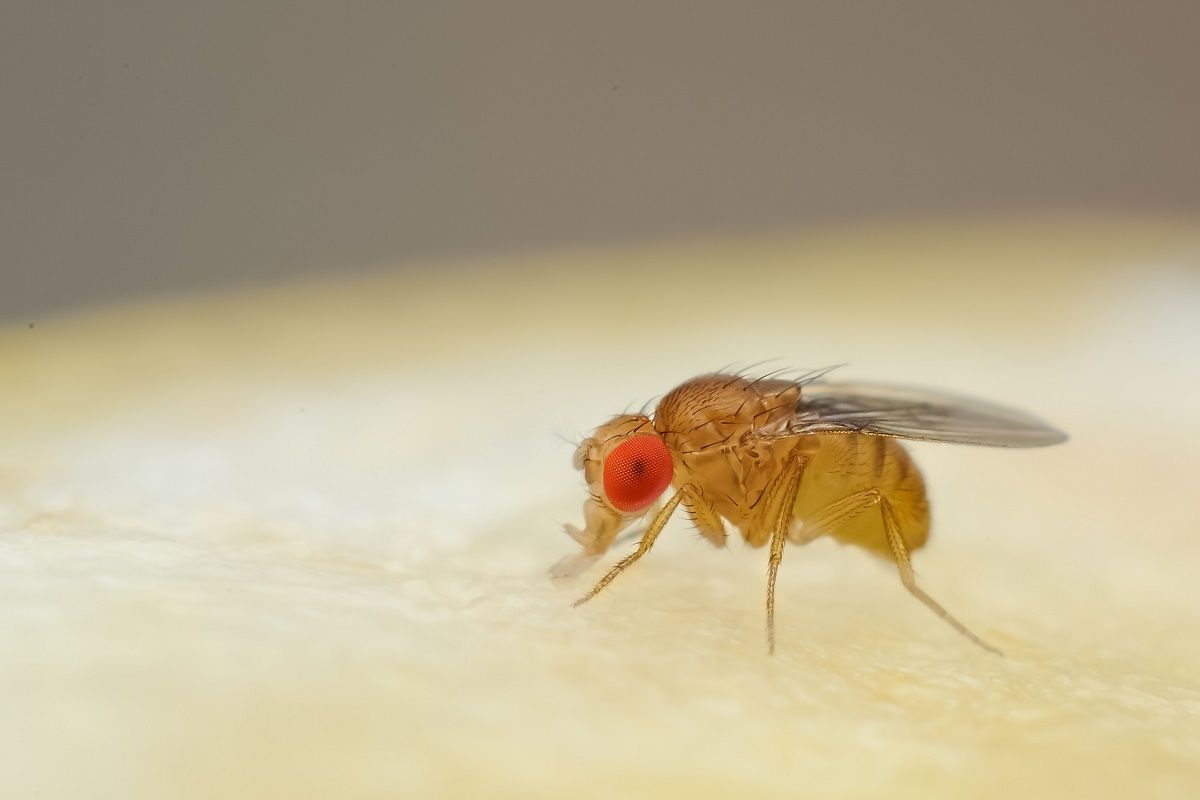There’s rarely just one fruit fly hovering over the browning bananas in your fruit bowl. That’s because fruit flies are social creatures, spending most of their time together in groups.
Scientists have noted that other social animals, including humans, tend to eat more and sleep less when isolated. To help understand these observations, a group of scientists decided to study fruit flies to find out what’s going on in their brains when they’re socially isolated.
They found that putting fruit flies in smaller groups didn’t change their behavior; even flies isolated in groups of two acted the way they usually do. But once a fruit fly was isolated all by itself, it began to show the behaviors that scientists have observed in other animals—eating more and sleeping less.
When they took their investigation further, they found that these changes were connected with brain cells called P2 neurons. When the team shut off P2 neurons in flies that had been isolated, the flies stopped overeating and returned to their normal sleeping habits. When they boosted the neurons’ functioning in flies that had only been isolated for a day, the flies’ eating and sleeping habits were the same as those of flies that had been isolated for a whole week. The scientists think that these neurons are linked to the fruit flies’ perceptions of how long they’ve been isolated.
We don’t know whether these same biological mechanisms are linked to similar behaviors we’ve seen in humans. But if you’ve been noticing your eating and sleeping habits change during isolation too, maybe you’ll feel some kinship with those pesky fruit flies.
Reviewed by Jini Naidoo, the University of Pennsylvania.
Source
Lonely Flies, like many humans, eat more and sleep less Science Daily
More like this:
Originally aired February 7, 2022.










